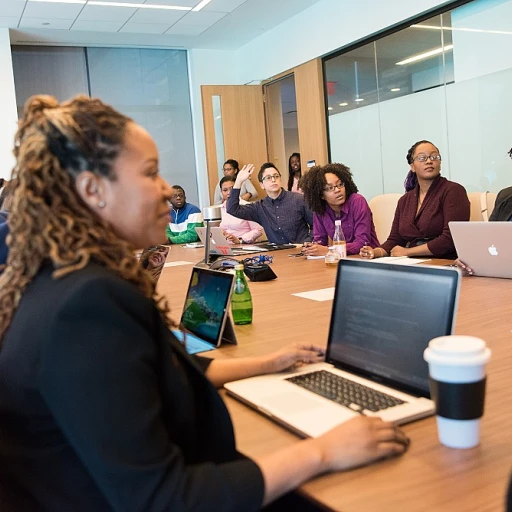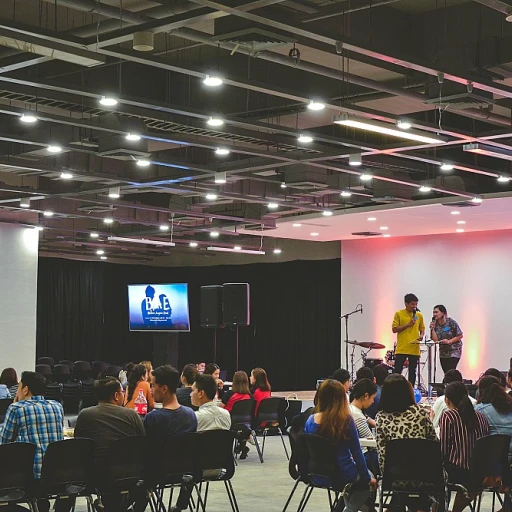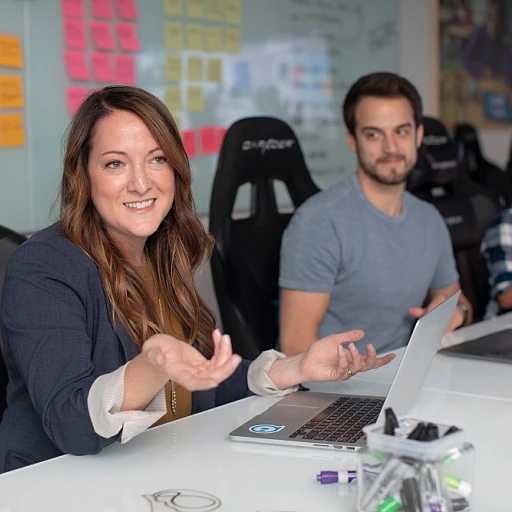The Evolving PCA Job Description
Transformations in the Role of Personal Care Assistants
In today's rapidly evolving healthcare landscape, the role of Personal Care Assistants (PCAs) is undergoing significant changes. With advancements in technology and the integration of artificial intelligence, the traditional PCA job description has expanded far beyond its original scope. Personal care assistants are now expected to adapt to new tools and resources that enhance their ability to provide effective support to patients and clients. The job of a PCA has traditionally encompassed tasks such as helping with personal hygiene, daily living activities, and supporting healthcare professionals in providing care services. However, as the healthcare industry continues to embrace AI-driven solutions, the scope of a care assistant's responsibilities is broadening. PCAs are not only focusing on physical care but are also engaging with technologies designed to improve care delivery and ensure a more personalized approach to patient support. New AI tools are transforming how PCAs interact with their patients, enabling them to gather more comprehensive data and insights into a client's health and personal care needs. This shift allows for more effective monitoring and management of patient status, ultimately leading to improved outcomes. Additionally, AI-powered platforms are assisting PCAs in streamlining administrative tasks, allowing them to focus more on patient care activities, enhancing their overall efficiency and effectiveness. To thrive in this dynamic environment, PCAs must be equipped with a diverse skill set that includes both traditional care skills and an understanding of technological tools. Training and development programs are increasingly focusing on these aspects to better prepare personal care assistants for the challenges and opportunities that come with AI integration. For those interested in exploring the evolving role of PCAs, resources like this article on agentic AI vendors in human resources provide valuable insights into how AI is reshaping various sectors, including healthcare. It's an exciting era for care aides, with technology playing a pivotal role in redefining what personal care entails in modern care facilities.AI Tools Enhancing PCA Efficiency
Digital Tools Revolutionizing Personal Care
The role of Personal Care Assistants (PCAs) is being transformed by artificial intelligence (AI) tools that are enhancing efficiency and enabling better care and support for clients. As technology continues to evolve, PCAs have a plethora of digital resources that can help streamline their activities and improve service delivery in healthcare settings. AI applications are increasingly prominent in the daily tasks of PCAs, from assisting with personal hygiene routines to monitoring patients' health via wearable technologies. These tools provide real-time data that helps healthcare professionals including PCAs, offer personalized care based on a client’s unique needs. Many AI-driven platforms provide comprehensive solutions for managing care services, including scheduling tools that organize daily living activities and reduce the administrative burden on care aides. The integration of assistance platforms allows for a seamless coordination of tasks, such as medication management and appointment reminders, ensuring that care facilities operate more smoothly. Moreover, AI tools are becoming invaluable in support of the job performed by PCAs as they work closely with family members of the patients. These tools facilitate communication, maintaining clear records, and updates which ensure families are kept informed of a client's well-being and progress. For students preparing for a career as a personal care assistant, gaining familiarity with AI tools is becoming essential. It is crucial for aspiring PCAs to become proficient in the technologies that will shape their job descriptions and enhance the quality of care they provide. From smart health devices to advanced data analytics, AI is positioned to redefine the way PCAs perform their duties. For further reading on the role of agentic AI vendors and the ongoing transformations in HR roles, you might find this exploration of AI vendor roles in HR useful.Challenges Faced by PCAs in the AI Era
Navigating the Complexities of the AI Age for Personal Care Assistants
In the rapidly advancing field of artificial intelligence, personal care assistants (PCAs) have found their roles undergoing significant changes. Despite the promise of AI tools enhancing efficiency and supporting healthcare professionals, PCAs face a unique set of challenges when it comes to integrating these technologies into their daily routines. While AI can greatly assist with routine tasks, such as scheduling or managing appointments, the job descriptions of care aides and assistants still fundamentally revolve around personalized support for clients—particularly in the realm of health and personal hygiene. The irreplaceable human touch required in activities of daily living, such as assisting with mobility and providing emotional support, often poses difficulties for AI systems limited in empathetic interaction. Another prominent challenge lies in the adaptation to technology within care facilities. Many PCAs, especially those whose job titles might not suggest a tech-centric role, may find the shift towards AI-enhanced tools intimidating or challenging due to a lack of adequate training or resources. This situation often requires thoughtful job description templates and assistant job frameworks that clearly delineate technological expectations. Furthermore, as AI becomes more integrated into healthcare services, PCAs must navigate ethical considerations, ensuring the rights and dignity of patients are upheld. Maintaining a balance between benefiting from technological support and preserving the essential elements of compassionate care is crucial. Addressing these challenges involves not only adapting the existing PCA description to reflect new toolsets but also fostering continuous development through reliable training programs. While this transformation may prove daunting for some assistants and their supervisors, support from healthcare providers and educational institutions is essential in equipping PCAs with the requisite skills. For PCAs navigating these challenges, it is crucial to stay informed about AI's role in human resources at Workday, as understanding these developments can lead to more efficient and empathetic care provision. Adapting effectively can ensure that they remain indispensable in the ever-evolving healthcare landscape, ultimately benefiting the clients and family members who rely on their critical support.Training and Development for PCAs
Boosting Skills and Knowledge for the Modern Care Assistant
The introduction of AI in care services has transformed the landscape of personal care assistant (PCA) roles. With technology advancing, it's crucial for healthcare professionals, including care aides and personal assistants, to pursue ongoing training and development opportunities to remain effective and relevant in their job titles. This section explores the key aspects of preparing PCAs for AI integration in their work. Firstly, training initiatives should focus on understanding and using AI tools designed to enhance daily living activities support. PCAs play a critical role in helping clients, including patients and family members, maintain their personal hygiene and carry out activities of daily living. Through specialized training, care assistants can learn how to effectively incorporate AI solutions, leading to improved outcomes for their clients. Secondly, training programs can significantly benefit from partnerships with educational institutions, such as high schools and colleges that offer relevant courses. Students aspiring to become care assistants can gain insights into integrating AI innovations within the healthcare setting, thereby creating a seamless transition into professional roles. Moreover, job-specific training sessions and workshops can address real-world applications and practical scenarios that PCAs might encounter. This includes simulating interactions with AI-driven healthcare environments, helping assistants anticipate and resolve challenges they may face in care facilities. Educational curriculums should also highlight the importance of combining technical skills with soft skills, like effective communication and empathy, to maintain strong relationships with clients. Resources like interview questions templates can help PCAs build proficiency and confidence in their roles. Ultimately, embracing continuous learning opportunities and leveraging the advancements of AI in personal care work can empower PCAs to excel in their description templates, enhancing the quality of care they provide.Ethical Considerations in AI-Driven PCA Roles
{\n \"result\": \"Ethical Implications of AI in Personal Care Assistant Roles
\n\nThe integration of artificial intelligence into the personal care assistant (PCA) landscape brings forth a myriad of ethical considerations that must be addressed by healthcare professionals and organizations. In a sector that is inherently centered on personal interactions and individualized care, ensuring the ethical deployment of AI tools is paramount to maintaining trust and professionalism.\n\n- \n
- Privacy Concerns: With AI tools assisting PCAs, it is essential to consider the boundaries of privacy for patients and clients. Since digital tools can collect and analyze a significant amount of personal information, strict data protection measures must be enforced to protect sensitive health data from unauthorized access. \n
- Maintaining Human Touch: While AI tools can vastly enhance the efficiency of PCAs in their daily activities, there is a risk of minimizing the human interaction that is vital in personal care. It is crucial to strike a balance where technology aids in care without replacing the meaningful connections between care assistants, clients, and their families. \n
- Bias and Equality: AI systems can inadvertently perpetuate biases present in the data they are trained on. It is essential for healthcare facilities and policymakers to ensure that AI-driven decisions do not reinforce existing prejudices, especially concerning the allocation of care resources or job opportunities within the sector. \n
- Responsibility and Oversight: With AI increasingly involved in decision-making, the delineation of responsibility between human assistants and algorithmic assistance becomes crucial. There must be clarity around who is accountable for decisions made with AI support, ensuring culpability is clear in the event of an error. \n
- Transparency: Patients, clients, and their family members should be informed about the extent to which AI is used in their care. This transparency helps in setting realistic expectations and demystifying any technological fears or misconceptions. \n
Future Outlook for PCAs with AI Integration
Embracing AI for a Future-Ready PCA Workforce
The integration of artificial intelligence into the personal care assistant (PCA) role is reshaping the landscape of healthcare support. As AI tools become more prevalent, PCAs will find themselves adapting to new technologies that enhance their ability to provide personal care and support to clients and patients. This evolution promises to improve the efficiency and effectiveness of care services, but it also requires PCAs to be proactive in their professional development.
One of the key areas where AI will make a significant impact is in the optimization of daily activities. By leveraging AI-driven systems, care assistants can better manage their time and resources, ensuring that personal hygiene and other essential tasks are completed efficiently. This will allow PCAs to focus more on the human aspects of care, such as emotional support and building relationships with family members and clients.
Moreover, the job description of a PCA will likely expand to include new responsibilities related to AI tools. This might involve data management, using AI to monitor patient health, or even training AI systems to better understand the needs of clients. As such, healthcare professionals must be prepared to embrace continuous learning and development to stay relevant in their roles.
For students and aspiring PCAs, this means that education and training programs must evolve to include AI competencies. High school curricula and vocational training should incorporate AI literacy, ensuring that future care aides are equipped with the skills needed to thrive in a tech-driven healthcare environment.
In conclusion, the future of the PCA job title is bright with the integration of AI. By embracing these technological advancements, PCAs can enhance their ability to provide high-quality care, ultimately benefiting both healthcare facilities and the individuals they serve.










